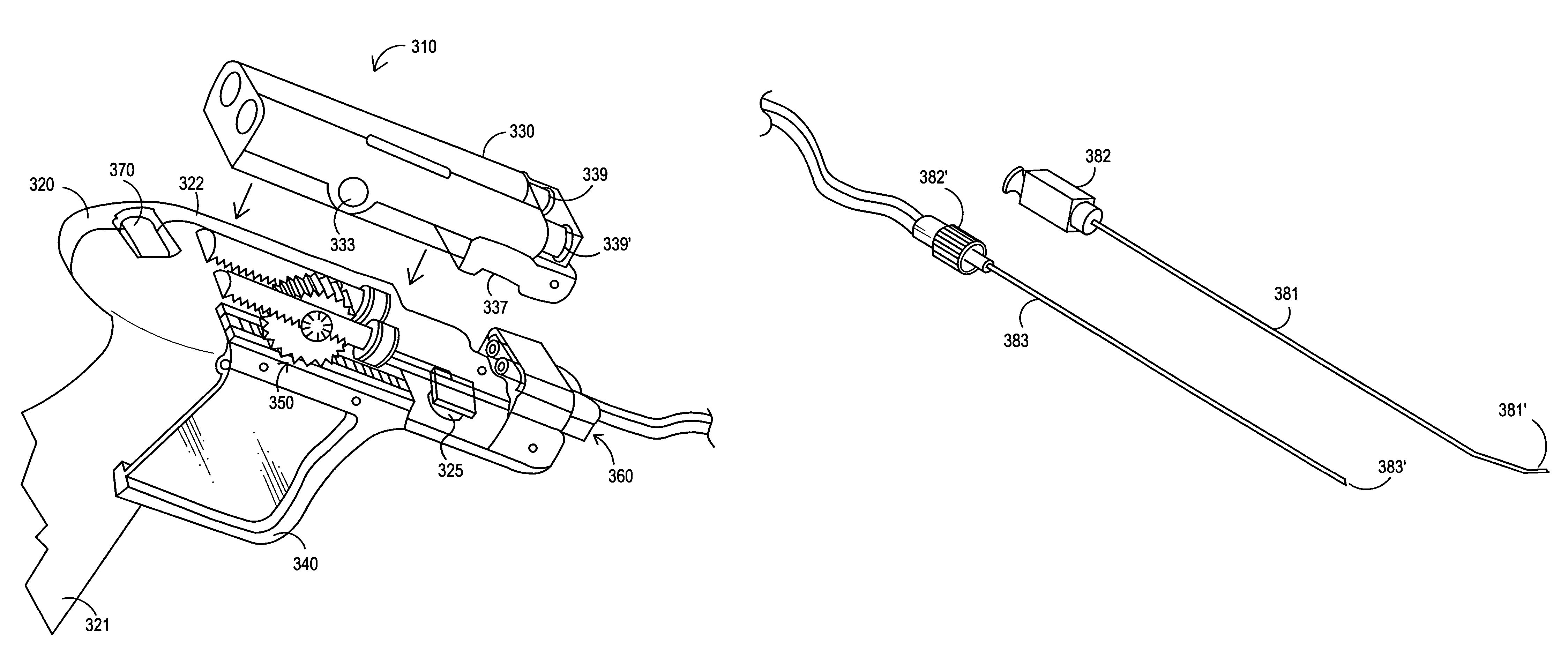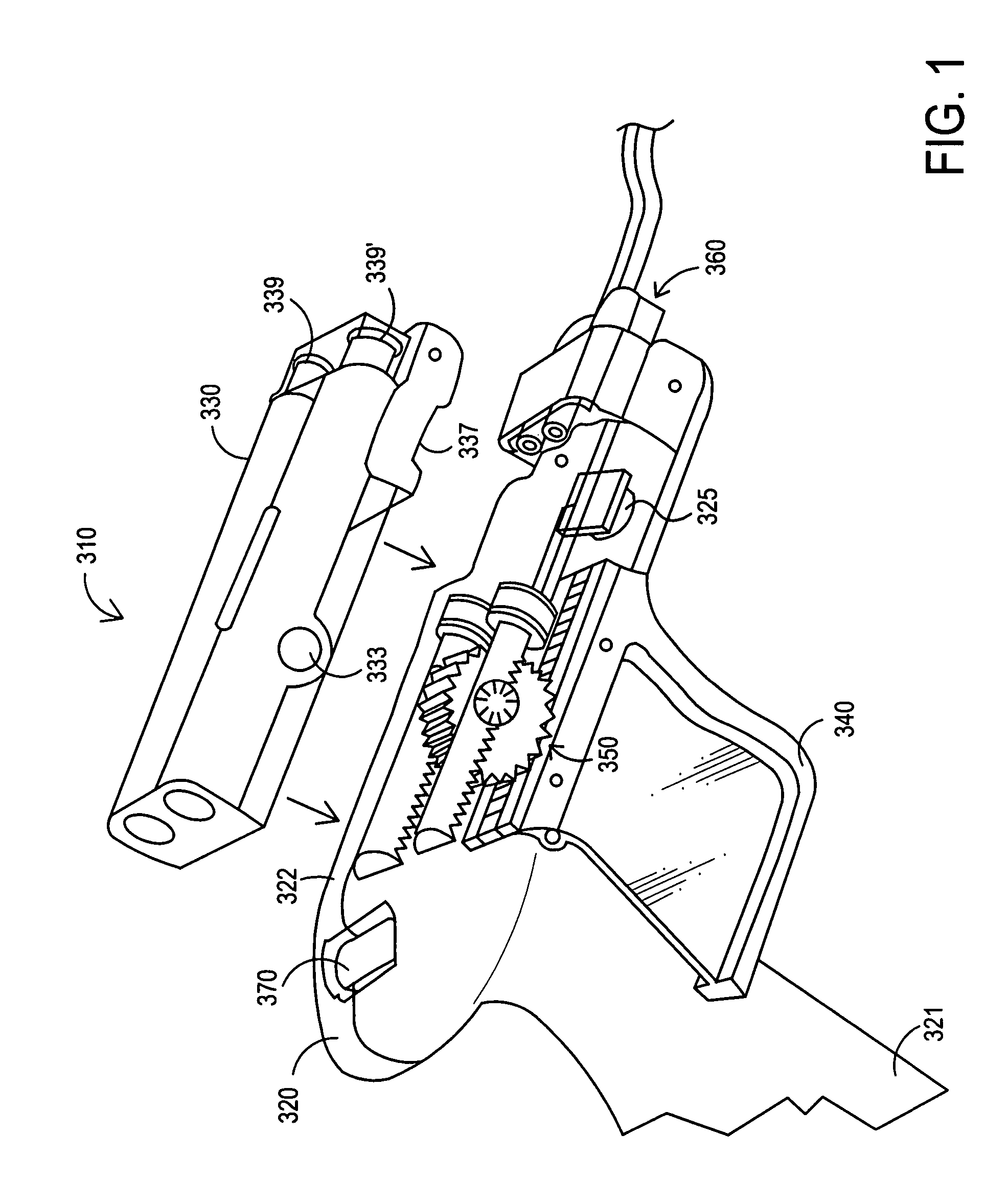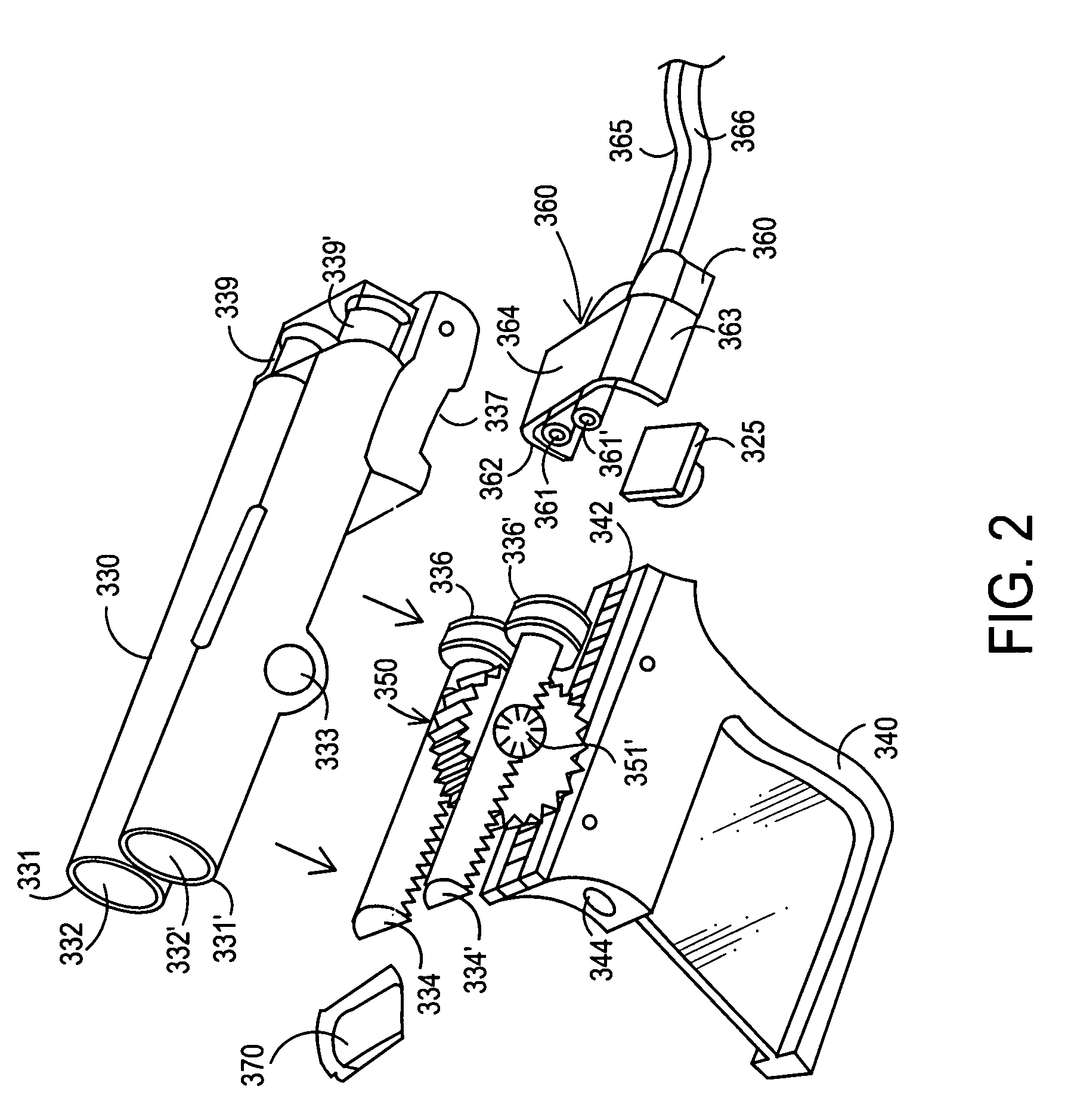Apparatus and method for delivery of biologic sealant
a technology of biologic sealant and applicator, which is applied in the direction of instruments, prosthesis, peptide/protein ingredients, etc., can solve the problems of prone to clogging of the prior delivery device shown in u.s. pat. no. 6,468,527, and achieve the effects of facilitating mixing of components, improving set-up time, and prolonging pain reli
- Summary
- Abstract
- Description
- Claims
- Application Information
AI Technical Summary
Benefits of technology
Problems solved by technology
Method used
Image
Examples
example 1
Fluoroscopic Transforaminal Epidural Injection
[0056]With a patient in the prone position on the imaging table, a fluoroscope is positioned and adjusted to locate the intervertebral foramen of the affected nerve root. A curved 22 ga.×3.5″ needle is introduced after anesthetizing the skin and deep tissue. The needle is advanced under direct fluoroscopic vision to a position in the anterior epidural space. Positioning of the needle is verified by a lateral fluoroscopic view and by injecting contrast medium through the needle. Such positioning may or may not require further adjustment. If adjusted, location of the needle is once again verified. Advancement of the needle into the correct region may stimulate pain in a manner consistent with the initial complaint. Therefore, needle placement may also be verified by the patient's pain recognition. The epidural space is anesthetized with injectable anesthetic. The fibrin sealant of fibrinogen and thrombin (prior to clotting) is then introdu...
example 2
Fluoroscopic Guided Intra-Discal Injection
[0059]After sterile preparation, an introducer needle is advanced in oblique projection to a superior articular process. A curved spinal needle is advanced through the introducer needle into the disc. Both anterior-posterior and lateral fluoroscopic projections are used to confirm proper needle placement. If the needle placement needs to be adjusted, placement is again confirmed fluoroscopically. A contrast agent is injected to confirm needle placement. In patients with chemical radiculitis, the contrast agent can be observed to be leaking through the annular fissures and / or intra-discal pathology can be identified. Once the needle is properly positioned in the intra-discal space, the fibrin sealant is injected using the delivery device of this invention such as shown in the FIGS. The fibrin sealant is observed to force the contrast agent from the intra-discal space as it seals the annual fissures. Alternatively, the contrast agent is inject...
example 3
Comparative Assessment of the Physical Property of Clots
[0060]TISSEEL VH S / D fibrin sealant was prepared according to manufacturer guidelines. The reactive components were mixed and delivered using a DUPLOJECT delivery device or the deliver device of this invention as shown in FIGS. 1-8 and 9-12.
[0061]In the device of this invention used in this example, the tip of the inner needle was approximately one inch short of the distal tip of the introducer needle. The inner needle was a 22 gauge needle and the outer needle was an 18 gauge needle. As used herein including Table 1, “Biostat” refers to the device used in the tests constructed according to this invention.
[0062]A DUPLOJECT delivery device is the standard device used currently for mixing and providing fibrin sealant. The DUPLOJECT device includes dual syringes that feed fibrinogen solution and thrombin solution into a Y-connector where mixing of the solutions is initiated. The DUPLOJECT device is equipped with a standard one inc...
PUM
| Property | Measurement | Unit |
|---|---|---|
| diameter | aaaaa | aaaaa |
| diameter | aaaaa | aaaaa |
| viscosity | aaaaa | aaaaa |
Abstract
Description
Claims
Application Information
 Login to View More
Login to View More - R&D
- Intellectual Property
- Life Sciences
- Materials
- Tech Scout
- Unparalleled Data Quality
- Higher Quality Content
- 60% Fewer Hallucinations
Browse by: Latest US Patents, China's latest patents, Technical Efficacy Thesaurus, Application Domain, Technology Topic, Popular Technical Reports.
© 2025 PatSnap. All rights reserved.Legal|Privacy policy|Modern Slavery Act Transparency Statement|Sitemap|About US| Contact US: help@patsnap.com



